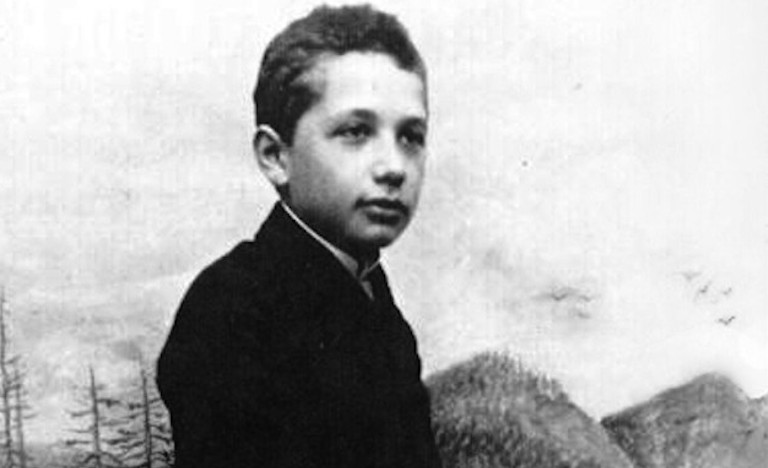Childhood

Late Talker
For a child destined to become one of the greatest scientists of all time, Albert Einstein had a rather faltering start. He expressed his first words when he was already over two years old. Some thought he was retarded, and the housekeeper of the family called hem "numb". Even when he finally talked, he had the strange habit of repeating every sentence he spoke. He retained this tendency to a certain extent for the rest of his life. It has been claimed that Einstein's early speech problems explain his preference for thinking in images. This was essential in some of his greatest scientific breakthroughs
School Time
Young Einstein attended a Catholic school. As a child, he was a loner and liked to play with his construction kit, preferring to daydream rather than participate in group games. When he was nine, he attended the Luitpold Gymnasium in the city-center of Munich. Here, the young Einstein, eagerly focused on science and mathematics. When he was fifteen he mastered infinite calculation, a technique to study how numbers change over time. At school, Einstein's infamous lack of regard for authority came to light, making him unloved by many teachers.
The Young Musician
Albert turned out to have musical talent. His mother, who was an excellent planist herself, took him on violin lessons. Einstein soon became a skilled violinist and developed a true love for classical music. Mozart was his favorite composer. Music remained a passion throughout his life. In his twenties, he reportedly rushed in to one of his neighbors who played Mozart on the piano, just to accompany him on the violin. He seemed to have played a duet with astronomer and TV presenter Sir Patrick Moore, but unfortunately there are no recordings of that. For Einstein, music was not only a pleasant pastime, but also served as a source of inspiration that supported his concentration and creativity.